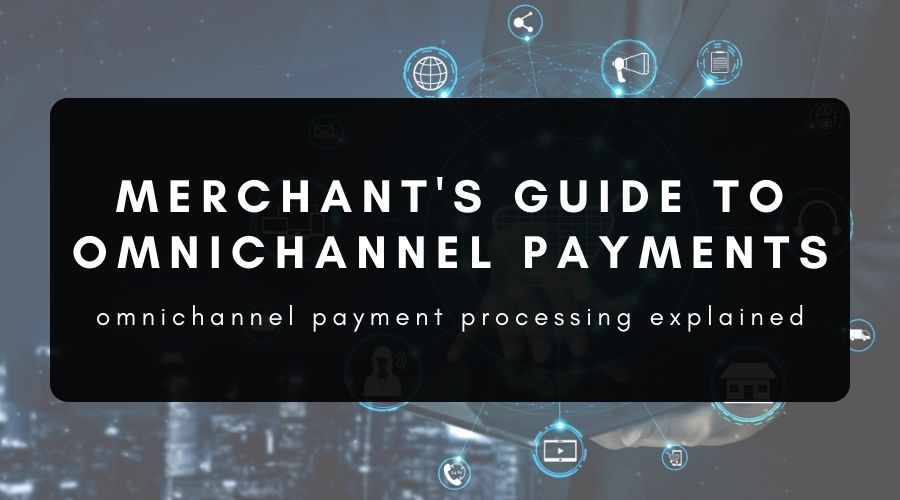
Merchant Guide to Omnichannel Payments
European ecommerce revenues reached over €717 billion last year, and if you want to be a successful part of this online commerce gold rush, you need to support omni-channel payments. The concept of omnichannel is simple: It’s all about accommodating the greatest number of consumer payment preferences while simultaneously streamlining your customer payment information.
What Is Omnichannel Payment Processing?
Omnichannel payment processing means offering an assortment of integrated payment options to customers and centrally managing and tracking all of that payment information.
For example, if your online customers are required to check out using a major credit card, you’re not using an omnichannel payment processor. An omnichannel processor:
- Will give you the option of accepting multiple payment methods from your customers.
- Will support these diverse payment options on a single checkout page, ensuring that all of your customers have the same streamlined process.
- Will track and archive the purchase and payment history of each customer in one central location, even if the customer used a different payment method with each purchase.
- Will accommodate the same streamlined payment experience for both online and in-person purchases (for businesses with a brick-and-mortar presence).
- Will support streamlined invoicing and recurring billing as part of the system.
As new payment methods take off, omnichannel payment processing is becoming increasingly essential. It has become a major force not only in ecommerce but also in healthcare, insurance, and other major industries that accept payments in person and online.
Omnichannel Payment Methods
An omnichannel payment processor may support some or all of these payment methods:
- Major credit cards. Examples include Visa, Mastercard, and American Express. Every payment processor should support this type of payment.
- Domestic bank cards and debit cards. Each country in the EU has its own domestic bank cards. Your payment processor should be able to accommodate these forms of currency on behalf of your customers.
- Ecommerce payment systems. Though they’re not as popular worldwide, consumers in certain countries lean heavily on ecommerce payment systems. In the Netherlands, for example, iDEAL is the #1 payment system for ecommerce sales.
- Cash on delivery. COD is becoming less popular internationally, but certain countries like Romania still favor this simple payment method.
- Bank transfer. Direct bank-to-bank transfers, like ACH payments, are another streamlined option that some consumers prefer.
- Check. Some consumers still prefer to pay via check or echeck.
In addition, a quality omnichannel payment processor should be able to support additional payment services like Buy Now Pay Later (BNPL) schemes, and card-not-present transactions.
Why Every Merchant Needs Omni-Channel Payment Capabilities
An omnichannel payment system is the most comprehensive payment processing solution available. The more payment freedom you can provide to your customers, the more sales you’ll generate.
With an omnichannel system, you get:
- A simplified payment system that allows you to track all of your sales trends, payment channels, and customer data with greater accuracy and precision.
- An integrated solution that communicates seamlessly with your accounting, CRM, and other core software with less room for error.
- A personalised customer experience that allows you to reach the most diverse consumer base.
- Easier access to comprehensive customer information at your fingertips.
- A streamlined checkout process that allows each customer (regardless of their preferred payment option) to access the same user-friendly payment pages and the same secure gateways.
- Fewer abandoned carts and greater customer loyalty.
- A more cost-effective payment solution as you’re able to bundle a range of payment and analytics services together.
- A more seamless experience for refunds and returns (this, too, connects to customer satisfaction and loyalty)
There’s another aspect of omnichannel payment processing that we haven’t yet covered in depth: the omnichannel customer.
The omnichannel customer is one who uses multiple payment types to engage with a business. They might shop both online and in store. They might use multiple credit cards or payment methods depending on their needs at any given time. As a business owner, you must cater to these consumers because they’re among the most loyal and valuable customers you have.
Consider that omnichannel shoppers spend 4% more in store and 10% more online than single-channel customers. If you aren’t equipped to accommodate them, you’re going to lose business as a result.
Choosing an Omni-Channel Payment Provider
When choosing a merchant services provider or payment processor, make sure that they’re equipped for multi-channel payments. You want to go with a provider that:
- Accommodates multiple online payment methods and currencies under a single plan
- Allows you to track all customer data via a single convenient dashboard
- Offers virtual payment terminals to accommodate card-not-present and other non-traditional transactions
- Prioritises security and encryption (at Unicorn Group, we offer SHA-256 encryption, complete PCI compliance, and enhanced fraud detection tools)
Don’t compromise when it comes to accepting payments. If you don’t take steps to create an optimal digital payment experience, your competitors will. With omnichannel payment solutions, you’re in the perfect position to maintain your competitive edge.

